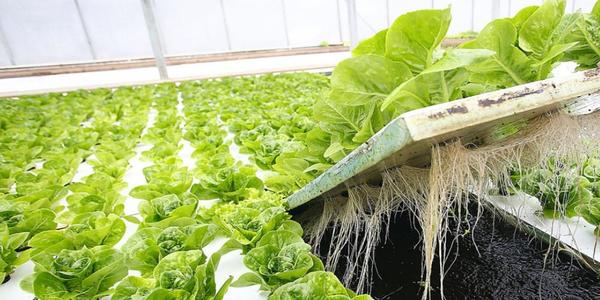
Comparing Hydroponics and Organic Farming: Why Hydroponics is Better
Hydroponics and organic farming are two popular methods of growing plants, each with their advantages and disadvantages. However, hydroponics has emerged as a better option in recent years, especially for urban farmers and those interested in indoor gardening. Here are some reasons why hydroponics is a better choice than organic farming:
- Efficiency: Hydroponics is an efficient system that allows for the optimal use of water and nutrients. Unlike organic farming, which relies on the soil to provide nutrients to the plants, hydroponics uses a nutrient-rich water solution that provides the exact nutrients needed for plant growth. This leads to more efficient use of resources and higher yields.
- Flexibility: Hydroponics is an adaptable system that can be used in various locations, including small kitchen gardens, urban spaces, and indoor environments. Hydroponic growkits are popular among urban farmers, as they allow for year-round crop production and can be easily set up in small spaces. Hydroponics is also ideal for growing indoor plants, as it eliminates the need for soil and reduces the risk of pests and diseases.
- Reduced environmental impact: Hydroponics has a smaller environmental footprint compared to organic farming. Organic farming relies on the use of pesticides and herbicides, which can contaminate water and soil. Hydroponics systems are designed to be pest and disease-resistant, reducing the need for harmful chemicals.
- Faster growth: Hydroponics can lead to faster plant growth compared to organic farming. Plants in hydroponic systems receive the nutrients they need directly, without the competition from weeds and other plants for nutrients. This results in faster growth and higher yields.
- Cost-effective: Hydroponics can be a cost-effective option for indoor gardening and small-scale farming. While organic farming requires soil, fertilizer, and other inputs, hydroponic systems require only water and nutrients. This can lead to cost savings in the long run.
In India, hydroponics has gained popularity in recent years, especially among urban farmers and those interested in indoor gardening. Hydroponics systems can be set up in small spaces, making them ideal for urban areas where space is limited. Additionally, hydroponics systems are designed to be efficient, reducing water usage and minimizing the environmental impact.
In conclusion, hydroponics is a better option than organic farming, especially for those interested in indoor gardening and small-scale farming. Hydroponics offers efficiency, flexibility, and reduced environmental impact, making it an ideal choice for the future of sustainable agriculture.
